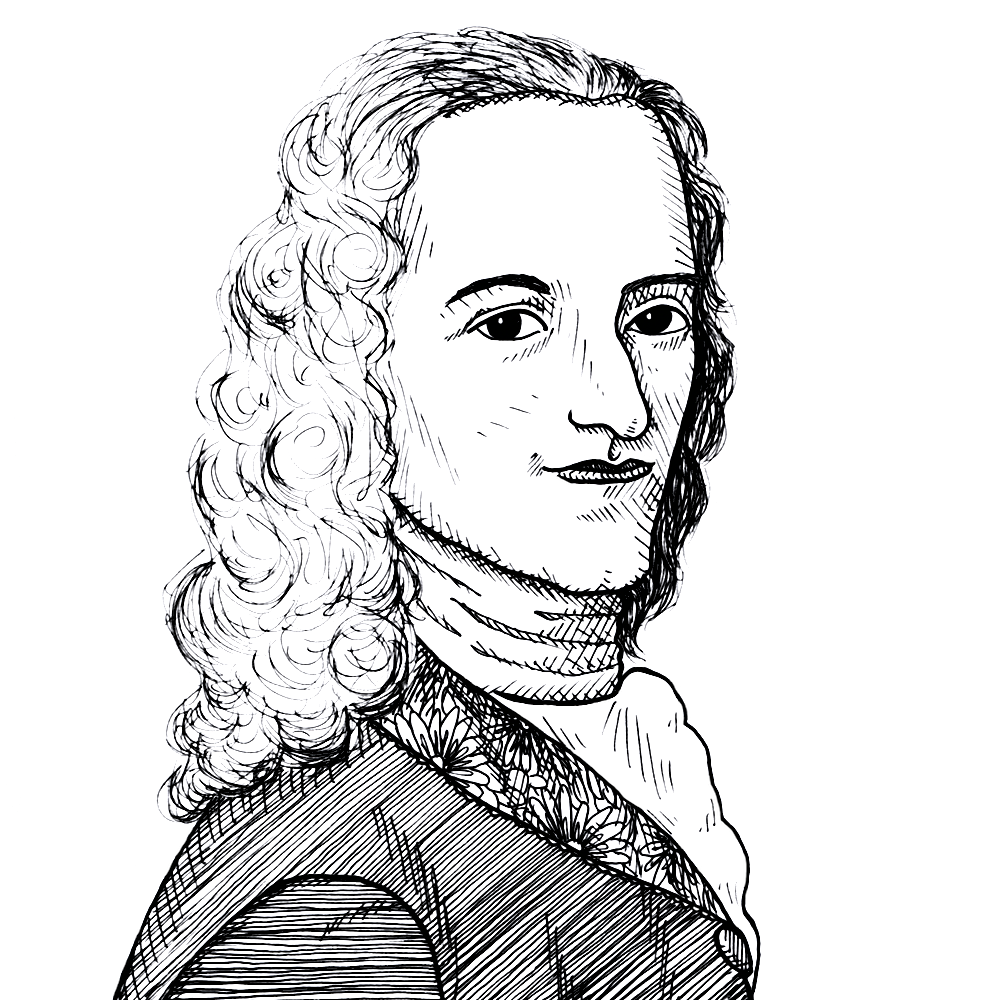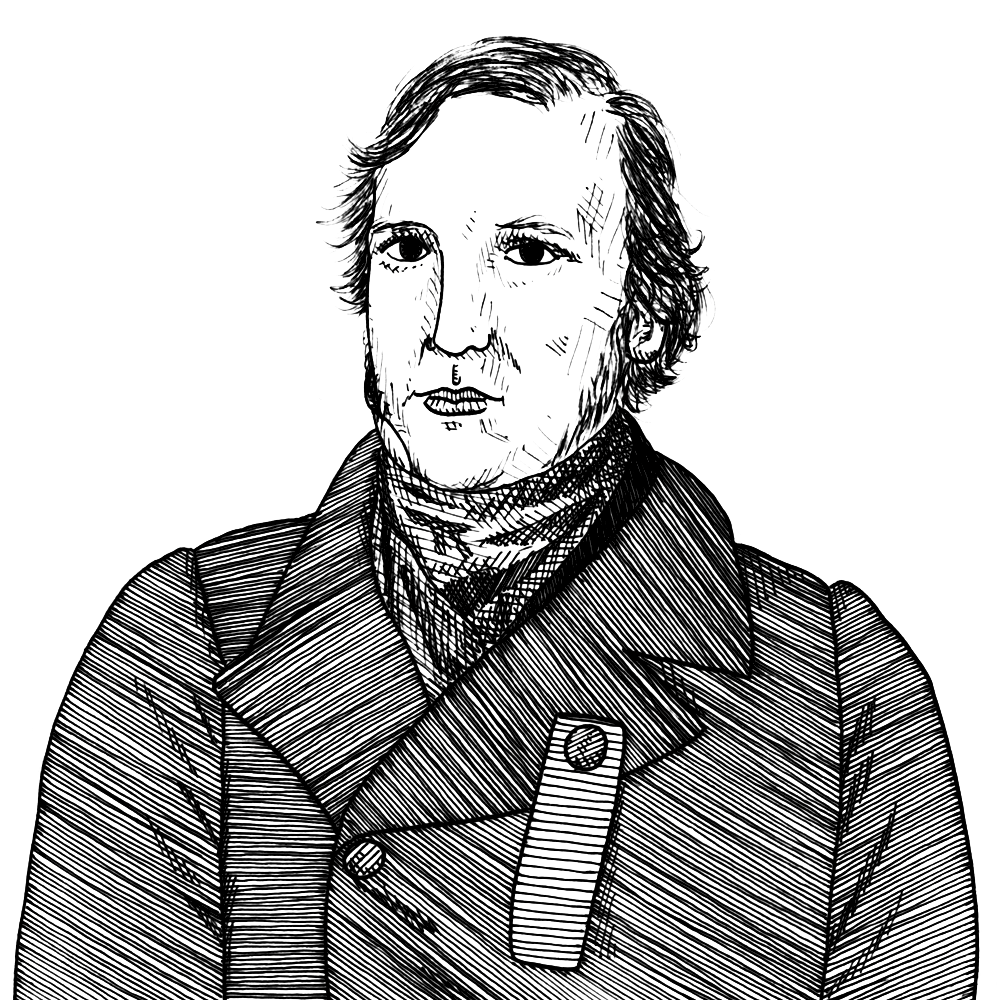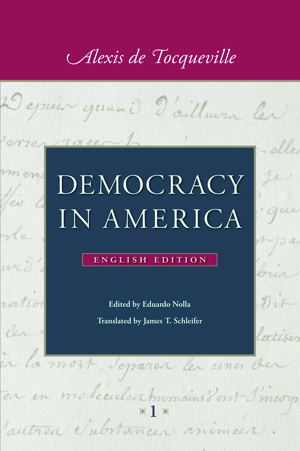
Part of: Democracy in America. English Edition. 2 vols. Democracy in America. English Edition. Vol. 1
- Alexis de Tocqueville (author)
- Eduardo Nolla (editor)
- James T. Schleifer (translator)
Volume 1 of a two volume English only version of Liberty Fund’s 4 volume bi-lingual critical edition. In 1831, Alexis de Tocqueville and his friend Gustave de Beaumont visited the United States. From Tocqueville’s copious notes of what he had seen and heard came the classic text De la Démocratie en Amérique, published in two large volumes, the first in 1835, the second in 1840. The first volume focused primarily on political society; the second, on civil society.
Table of Contents
- Back to Top
- democracy in america
- Contents
- Translator’s Note
- Acknowledgments
- Key Terms
- Foreword
- The Manuscripts of Tocqueville
- Some Details Concerning the Present Edition
- Abbreviations and Symbols Used in This Edition
- Note on the Manuscripts
- Acknowledgments
- Editor’s Introduction
- I: Legacies
- The Machine at Law
- The July Days
- America
- The Penitentiary System
- The First Democracy
- The Reception of Democracy
- England and the Second Democracy
- The Second Democracy
- II181: To Understand the Revolution
- The Theoretician of History
- A Philosophy of Action
- The Reign of Total Reason
- Dialectic of Ideas
- Foreword to This Edition
- Note on Volumes and Pagination
- VOLUME 1 (1835) Edition: current; Page: [2] : DEMOCRACY IN AMERICAa
- PART I Introductiona
- CHAPTER 1: Exterior Configuration of North America
- CHAPTER 2: Of the Point of Departure and Its Importance for the Future of the Anglo-Americansa
- Reasons for Some Singularities That the Laws and Customsb of the Anglo-Americans Present
- CHAPTER 3: Social State of the Anglo-Americans
- That the Salient Point of the Social State of the Anglo-Americans Is to Be Essentially Democratic
- Political Consequences of the Social State of the Anglo-Americans
- CHAPTER 4: Of the Principle of the Sovereignty of the People in America
- CHAPTER 5: Necessity of Studying What Happens in the Individual States before Speaking about the Government of the Uniona
- Of the Town System in Americac
- Town District
- Town Powers in New England
- Of Town Life
- Of Town Spirit in New England
- Of the County in New England
- Of Administration in New Englanda
- General Ideas on Administration in the United States
- Of the State
- Legislative Power of the State
- Of the Executive Power of the State
- Of the Political Effects of Administrative Decentralization in the United Statesc
- CHAPTER 6a: Of the Judicial Power in the United States and Its Action on Political Societyb
- Other Powers Granted to American Judges
- CHAPTER 7: Of Political Jurisdiction in the United StatesTN 4
- CHAPTER 8: Of the Federal Constitution
- Historical Background of the Federal Constitutiona
- Summary Picture of the Federal Constitutionj
- Attributions of the Federal Government
- Federal Powers
- Legislative Powersr [difference between the constitution of the senate and that of the house of representatives]
- Another Difference between the Senate and the House of Representativesw
- Of Executive Power16
- How the Position of the President of the United States Differs from That of a Constitutional King in France
- Accidental Causes That Can Increase the Influence of the Executive Power
- Why the President of the United States, to Lead Public Affairs, Does Not Need to Have a Majority in the Chambers
- Of the Election of the President
- Mode of Election
- Election Crisis
- Of the Re-election of the President
- Of the Federal Courts24
- Way of Determining the JurisdictionTN 5 of the Federal Courts
- Different Cases of Jurisdiction
- The Federal Courts’ Way of Proceeding
- Elevated Rank That the Supreme Court Occupies among the Great Powers of the State
- How the Federal Constitution Is Superior to the State Constitutions
- What Distinguishes the Federal Constitution of the United States of America from All Other Federal Constitutions
- Of the Advantages of the Federal System in General, and of Its Special Utility for Americam
- What Keeps the Federal System from Being within the Reach of All Peoples; And What Has Allowed the Anglo-Americans to Adopt It
- PART II
- CHAPTER 1: How It Can Be Strictly Said That in the United States It Is the People Who Govern
- CHAPTER 2: Of Parties in the United States
- Of the Remnants of the Aristocratic Party in the United States
- CHAPTER 3: Of Freedom of the Press in the United States
- That the Opinions Established under the Dominion of Freedom of the Press in the United States Are Often More Tenacious Than Those That Are Found Elsewhere under the Dominion of Censorship.n
- CHAPTER 4: Of Political Association in the United States
- Different Ways in Which the Right of Association Is Understood in Europe and in the United States, and the Different Use That Is Made of That Right
- CHAPTER 5: Of the Government of Democracy in America
- Of Universal Suffrage
- Of the Choices of the People and of the Instincts of American Democracy in Its Choices
- Of the Causes That Can Partially Correct These Democratic Instincts
- Influence That American Democracy Has Exercised on Electoral Lawsm
- Of Public Officials under the Dominion of American Democracy
- Of the Arbitrariness of Magistrates2 under the Dominion of American Democracyx
- Administrative Instability in the United States
- Of Public Expenses under the Dominion of American Democracy
- Of the Instincts of American Democracy in Determining the Salaries of Officials
- Difficulty of Discerning the Causes That Lead the American Government to Economyx
- [Influence of the Government of Democracy on the Tax Base {and on the Use of the Tax Revenues}]a
- [Influence of Democratic Government on the Use of Tax Revenues]
- Can the Public Expenditures of the United States Be Compared with Those of Francej
- Of the Corruption and Vices of Those Who Govern in Democracy; Of the Effects on Public Morality That Result from That Corruption and Those Vices
- Of What Efforts Democracy Is Capable
- Of the Power That American Democracy Generally Exercises over Itself
- Of the Manner in Which American Democracy Conducts the Foreign Affairs of the State
- CHAPTER 6a: What Are the Real Advantages That American Society Gains from the Government of Democracy?
- Of the General Tendency of Laws under the Dominion of American Democracy, and Of the Instinct of Those Who Apply Them
- Of Public Spirit in the United Stateso
- Of the Idea of Rights in the United States
- Of the Respect for the Law in the United Statesx
- Activity That Reigns in All Parts of the Political Body in the United States; Influence That It Exercises on Society
- CHAPTER 7: Of the Omnipotence of the Majority in the United States and Its Effectsa Edition: current; Page: [403]
- How the Omnipotence of the Majority in America Increases the Legislative and Administrative Instability That Is Natural to Democracies
- Tyranny of the Majoritym
- Effects of the Omnipotence of the Majority on the Arbitrariness of American Public Officials
- Of the Power Exercised by the Majority in America over Thought
- Effect of Tyranny of the Majority on the National Character of the Americans; Of the Courtier Spirit in the United States
- That the Greatest Danger to the American Republics Comes from the Omnipotence of the Majority
- CHAPTER 8: Of What Tempers Tyranny of the Majority in the United States
- Absence of Administrative Centralization
- Of the Spirit of the Jurist in the United States, and How It Serves as Counterweight to Democracyf
- Of the Jury in the United States Considered as a Political Institutionw
- CHAPTER 9: Of the Principal Causes That Tend to Maintain the Democratic Republic in the United Statesa
- Of the Accidental or Providential Causes That Contribute to Maintaining the Democratic Republic in the United Statese
- Of the Influence of Laws on Maintaining the Democratic Republic in the United States
- Of the Influence of Mores on Maintaining the Democratic Republic in the United States
- Of Religion Considered as a Political Institution, How It Serves Powerfully to Maintain the Democratic Republic among the Americans[*]
- Indirect Influence Exercised by Religious Beliefs on Political Society in the United States
- Of the Principal Causes That Make Religion Powerful in Americap
- How the Enlightenment, Habits, and Practical Experience of the Americans Contribute to the Success of Democratic Institutions
- That Laws Serve More to Maintain the Democratic Republic in the United States than Physical Causes, and Mores More than Laws
- Would Laws and Mores Be Sufficient to Maintain Democratic Institutions Elsewhere than in America?
- Importance of What Precedes in Relation to Europet
- CHAPTER 10: Some Considerations on the Present State and Probable Future of the Three Races That Inhabit the Territory of the United Statesa
- Present State and Probable Future of the Indian Tribes That Inhabit the Territory Possessed by the Unionh
- Position That the Black Race Occupies in the United States;30 Dangers to Which Its Presence Exposes the Whitesc Edition: current; Page: [549]
- What Are the Chances for the American Union to Last? What Dangers Threaten It?m
- Of Republican Institutions in the United States, What Are Their Chances of Lasting?
- Some Considerations on the Causes of the Commercial Greatness of the United States
- Conclusiona
- Notes
- First Part
- Second Part
Related People
Critical Responses
Journal Article
Liberty, Equality, and DemocracyEduardo Nolla
This title dives into Tocqueville’s political philosophy and social theories.
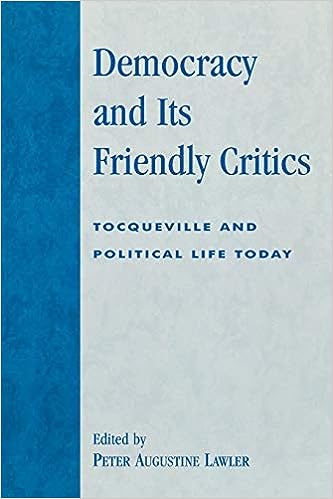
Book
Democracy and Its Friendly Critics: Tocqueville and Political Life TodayPeter Augstine Lawler, editor
As the title suggests, this compilation of essays examines Tocqueville and the political life of contemporary America.
Connected Readings
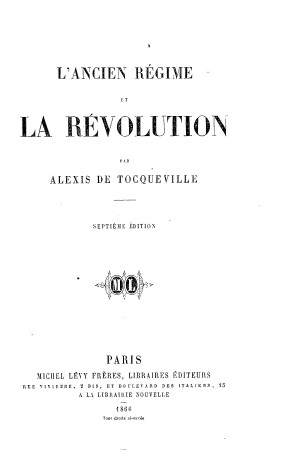
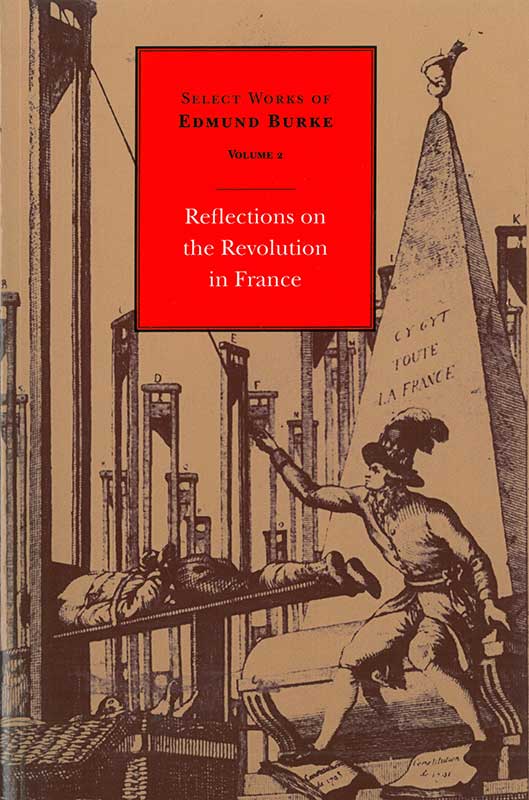
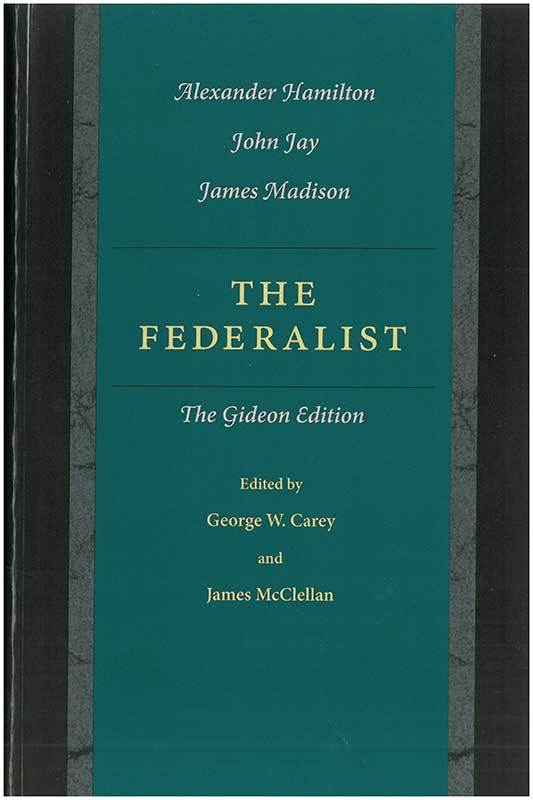
AdamSmithWorks Essay
Smith, Tocqueville, and Foucault on the Temptation of Enlightened DespotismEric Schilesser
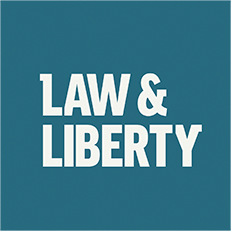

Book
Tocqueville’s Voyages: The Evolution of His Ideas and Their Journey Beyond His TimeChristine Dunn Henderson

